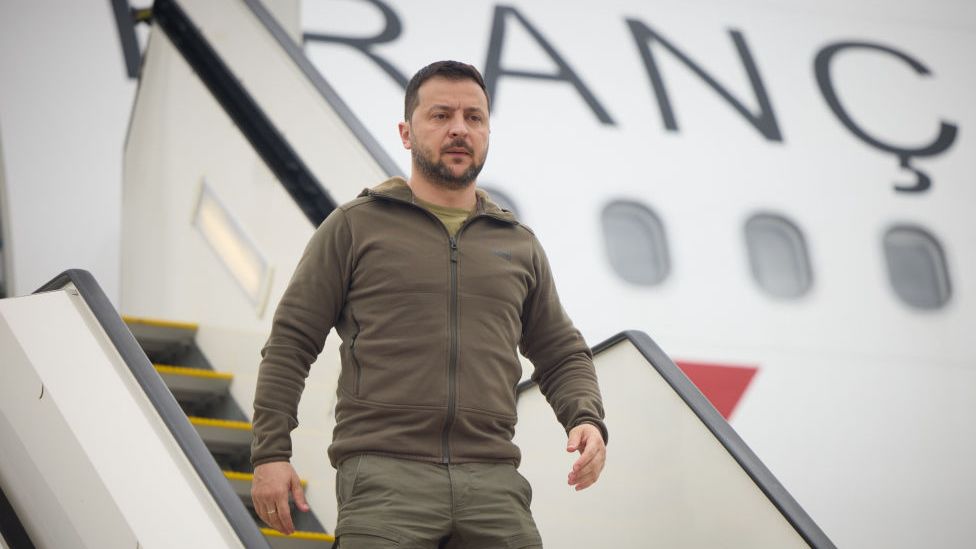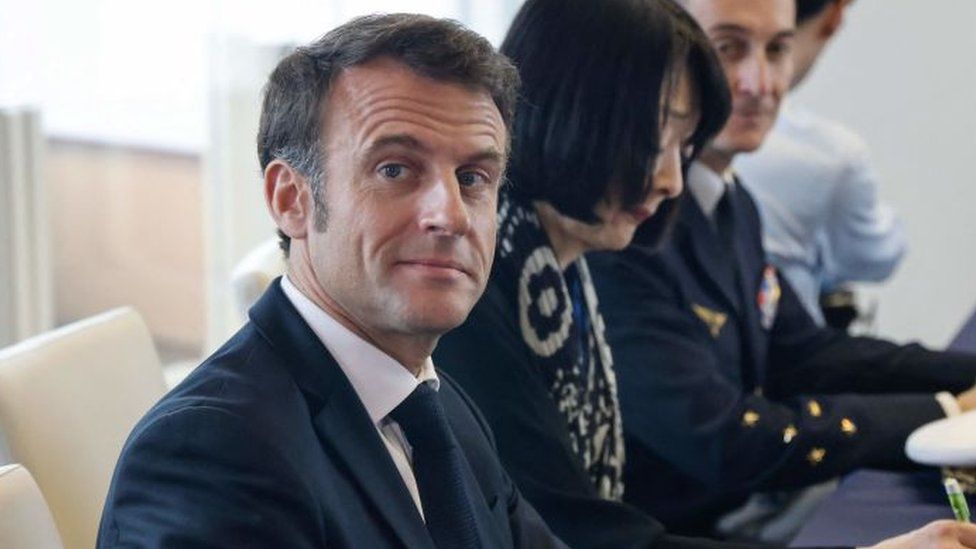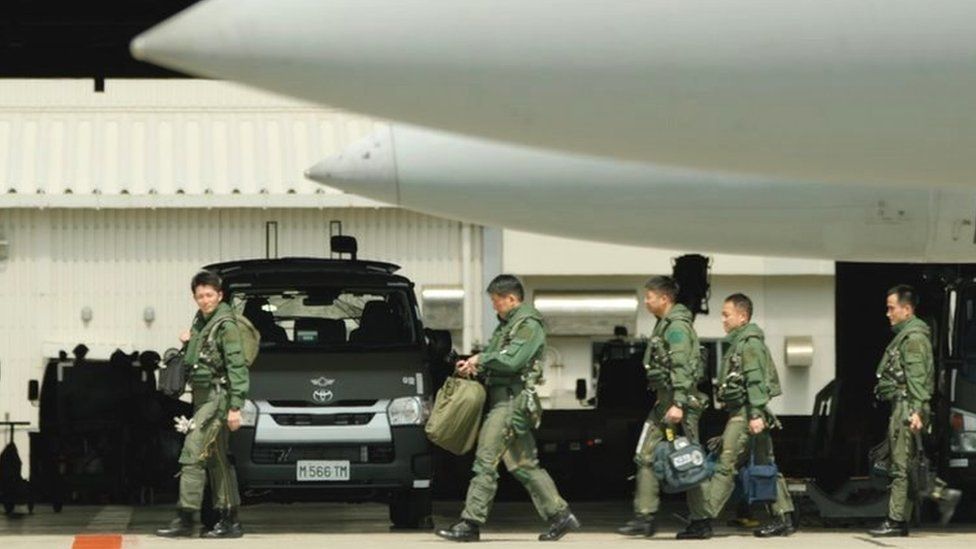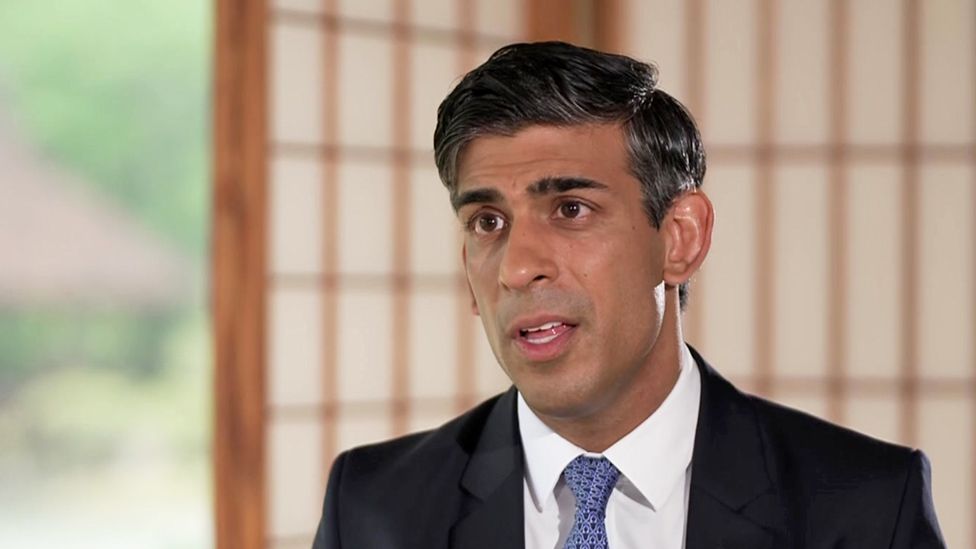
Volodymyr Zelensky made a scene-stealing arrival at the G7 summit in Japan on Saturday, as world leaders issued a veiled warning to China.
The Ukrainian president arrived in Hiroshima on a French government plane, after a stopover in Saudi Arabia.
His hastily-organised visit prompted G7 leaders to issue a statement early, in which they condemned Russia.
They also warned against “economic coercion”, which Beijing is accused of using against several countries.
This year’s gathering of the world’s richest democracies saw them extending invitations to several emerging economies in the so-called Global South, as well as India and Australia.
Top of the agenda is the Ukraine war, and Mr Zelensky’s last-minute appearance has added heft and urgency to discussions – as well as star power.
He arrived hours after Washington said it would train Ukrainian pilots on American-made F-16 fighter jets and allow allies to provide the advanced warplanes to Kyiv – a move condemned by Russia but hailed by Mr Zelensky as “historic”.
For the previous 24 hours, a “will he or won’t he” drama over Mr Zelensky’s trip to Japan dominated the news cycle. News of his possible visit broke on Friday and stole the limelight, just as leaders visited a peace memorial park in Hiroshima.
But even as news outlets scrambled to confirm it, there were confusing signals from Ukrainian officials on whether the Ukrainian leader was coming. It was a sign that, while his visit was reportedly mooted weeks ago in chats between Mr Zelensky and Japanese PM Fumio Kishida, the final decision was made abruptly.
Even his exact arrival time was shrouded in secrecy, until Japanese TV stations suddenly flashed live footage of him arriving at Hiroshima airport on a plane loaned to him by his close ally French President Emmanuel Macron.
Mr Zelensky was brisk upon touchdown, running down the stairs into a waiting car and diving straight into one-on-one meetings with various world leaders, including British Prime Minister Rishi Sunak, who greeted him with a friendly “You made it!”.
Now that he is here, Mr Zelensky’s presence not only adds a zing to the placid diplomatic proceedings, it overshadows them.
But it is unlikely the G7 leaders will mind. Their sanctions so far have failed to stop Russia’s invasion, and Friday’s pledge to “starve” Russia of resources for its “war machine” remains vague.
But with world leaders literally standing shoulder to shoulder with Mr Zelensky, the optics send a firm message to Moscow that they mean business.
The leaders also sought to deliver a message to Moscow’s ally, China.
Besides addressing key topics such as nuclear non-proliferation and climate change, their joint final statement talked about their commitment to the Indo-Pacific region, which they tried to demonstrate by inviting countries such as Indonesia, India and the Cook Islands.
They stressed their support of South East Asian and Pacific countries, which have been heavily wooed by Beijing, and called for a “free and open Indo-Pacific” – rhetoric used in the past in response to China’s territorial claims in the South China Sea.
More importantly, the leaders took a strong stance against what they called “economic coercion” – using trade to bully other countries – and called for China to “play by international rules”.
Stressing their commitment to “economic resilience”, they vowed to take steps to “reduce excessive dependences in our critical supply chains” – a reference to how the G7 countries are still inextricably linked to China in trade.
But they also said they wanted “constructive and stable relations” with China and added that their polices were “not designed to harm China nor do we seek to thwart China’s economic progress and development”.
China on Saturday expressed “strong dissatisfaction” with the G7’s joint statement, and complained to the summit organiser Japan, Beijing’s foreign ministry said.
“The G7 insisted on manipulating China-related issues, smearing and attacking China,” a spokesman for the foreign ministry said.
The summit will close on Sunday with Mr Zelensky, US President Joe Biden and Mr Kishida expected to speak.



